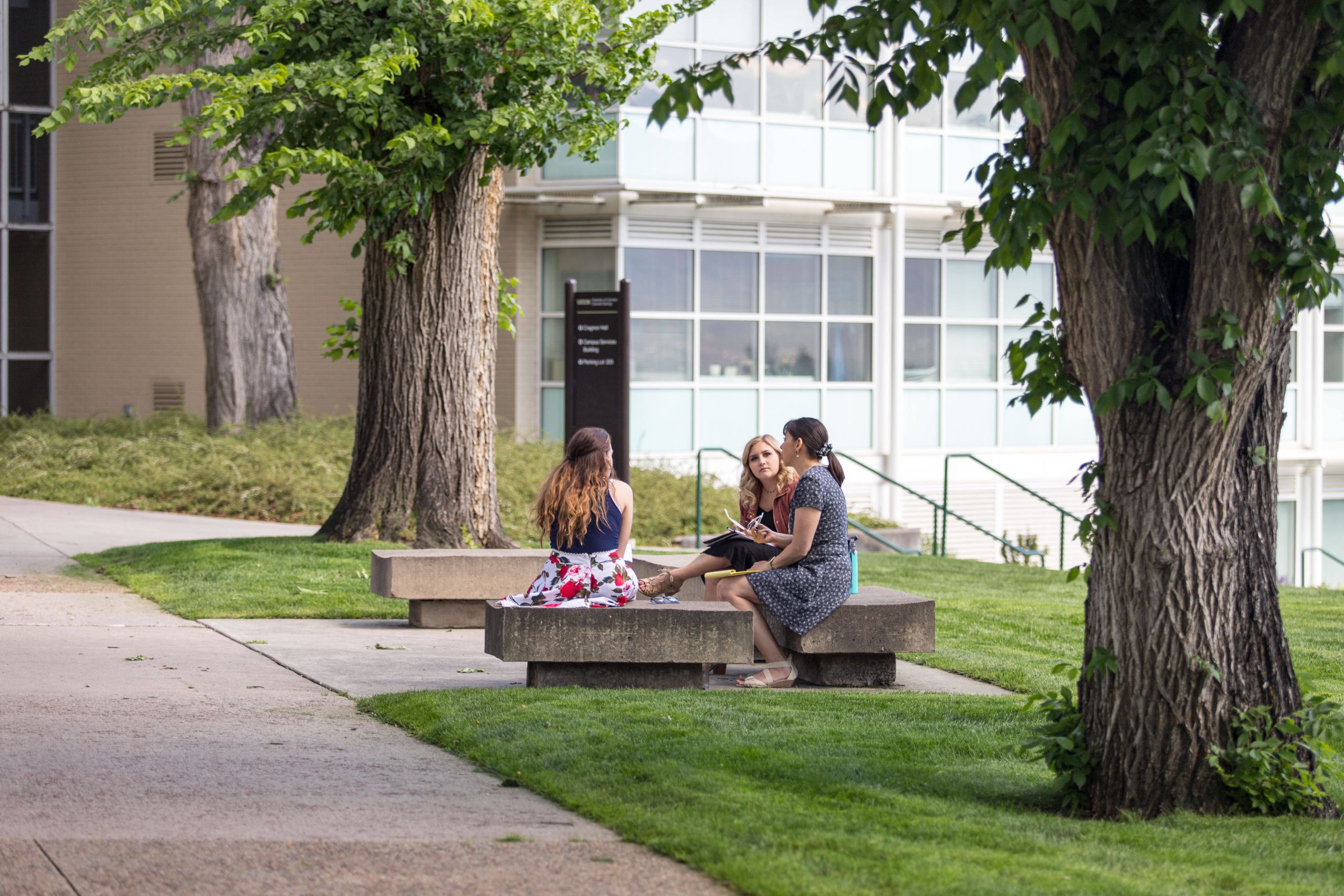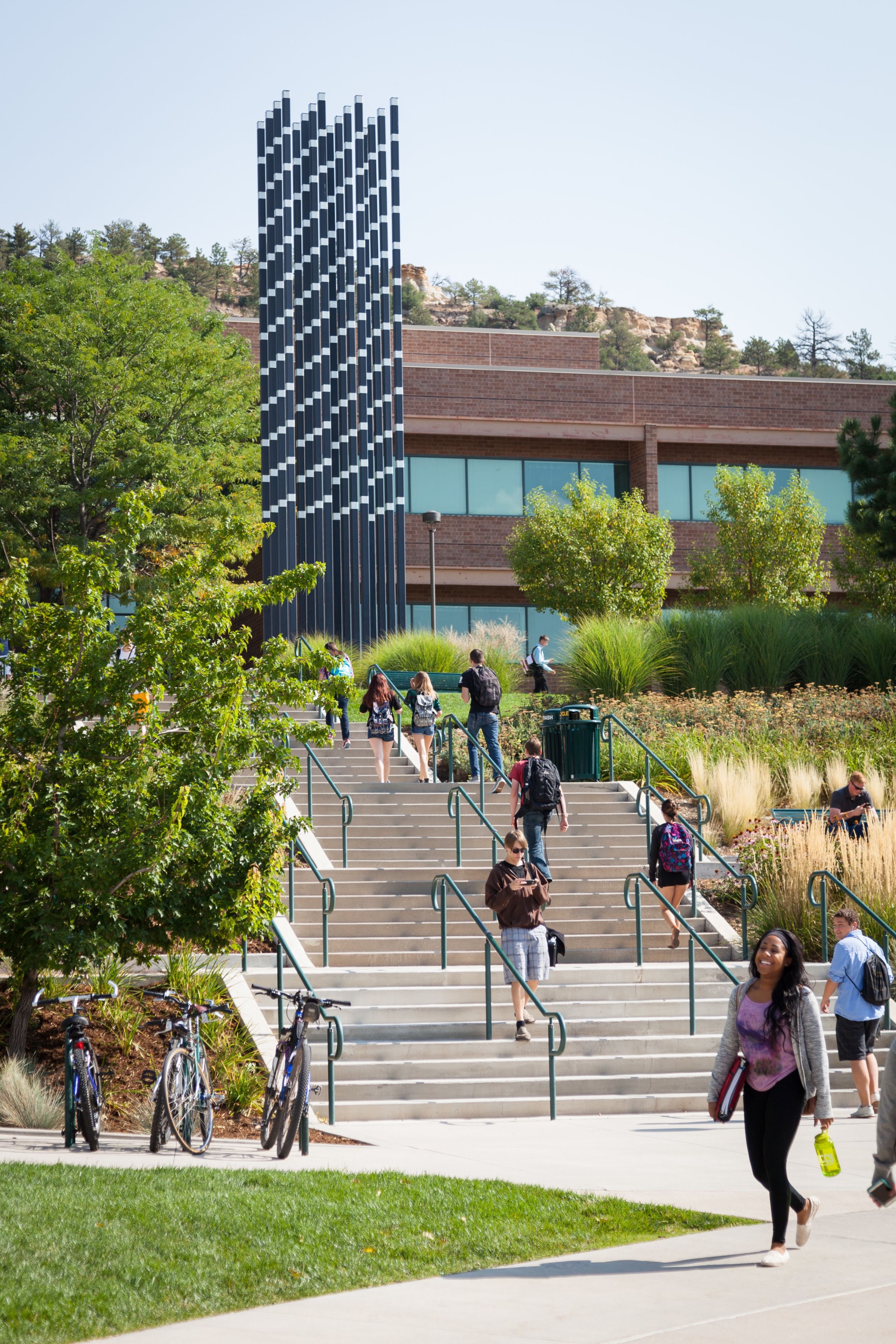College Admissions Goes Digital
In Colorado Springs, university leaders want a new system to broaden access

College enrollment has inspired dramatic headlines in recent months, and it’s not just because of Covid-19. The pandemic has caused a dip in enrollment, along with the potential impact of a financial downturn, but looking ahead, experts point to changing population patterns, falling fertility rates, and a drop in the number of international students as concerning trends.
Yet, for institutions that manage to respond to student needs, the picture is more hopeful, particularly for those willing to embrace new admissions strategies.
The University of Colorado Colorado Springs (UCCS) is embarking on a program of digital transformation that will allow it to position itself at the forefront of a competitive educational market. UCCS is the fastest-growing campus in the four-campus University of Colorado system. It is introducing a new digital product, Admissions Connect created by Salesforce.org, to strengthen the school's relationship with applicants by ensuring they are supported at each stage of their journey.
A Connected Approach to Admissions
The Covid-19 pandemic has quickened the pace of change in higher education, pushing colleges towards digital innovation. Increasingly, institutions are adopting a data-driven, digital-first approach that can help them better meet students’ needs — from uncovering inequities within their own institutions to personalizing engagements with learners, and creating a more connected experience that supports students and enables them to succeed.
Admissions Connect, a new Education Cloud product from Salesforce.org, modernizes application management for K-12 and higher education admissions teams. It guides prospective students through the application process, offering omni-channel support including a conversational chatbot. At UCCS, this solution will complement and work alongside platforms that were already in place — layering on top of the university-wide student information system and deepening its functionality.
The drive towards digitizing admissions at UCCS came from the recognition by senior leaders that technology would play a central role in the institution’s future. “We felt it was really important to introduce a significant level of technology,” said UCCS’s Chancellor, Dr. Venkat Reddy.
“This is about organizing ourselves in a powerful way so that we can serve our students better.” UCCS’s faculty and staff are comfortable with digital tools, he adds. “I think that’s very important. When the culture supports the transformation, it is much easier.”
Dr. Reddy has been at UCCS since 1991, when he joined the university as a professor in the college of business. Back then, UCCS had about 5,000 students; today it serves 12,000, as the city has evolved to become a hub of technology and innovation. “We have grown in terms of building out infrastructure and offering innovative programs. This growth is in line with the growth of our city,” he says. “We’ve been very good at adding programs that our community really needs.”
From early on in his career, Reddy has championed technology, working to expand online undergraduate programs in 1996, and later building up a highly-regarded online MBA. UCCS also developed a Bachelor’s degree in Innovation, a multidisciplinary degree that is, he says, “one of a kind in the nation.”
Reddy believes strongly in the potential of digital tools. About a third (34%) of students are from minority backgrounds, a third are low-income, and 20% are affiliated with the military. A large proportion of UCCS students (29%) are the first in their families to attend college. A state-of-the-art admissions system will allow the university to better address the needs of its diverse student body, he explains. “I always tell people, if we can help one first-generation student graduate, we just helped future generations go to college.”
A key message of the new system, he says, will be “How can we help?”
“Many students are the first in their family to go to college,” he says. “So if we can help them through technology and keep them on track, I think that’s going to benefit our students tremendously.”
A Relational Campus
For Mathew Cox, senior executive director of enrollment management at UCCS who is part of the team leading the new platform’s implementation, a crucial feature of the system is that it will free up staff time so that they can place their efforts where they are most useful. The previous system consumed large amounts of time on data entry and managing documents. “Those things are fundamentals,” he says. “I would much prefer that they are taken care of so that we can spend more time really trying to work at an individual level. This is a very relational campus.”
Administrators will be able to see how far along prospective students are in their applications, and will be more closely connected with school counselors and the schools themselves. Alerts and reminders will be generated automatically and sent to students, who will have information about topics like affordability, academics and cost at their fingertips.
Increasingly, college enrollment is about developing relationships over the long-term, often when students are in ninth or tenth grade. Fostering these links is even more critical when the young person is likely to be the first in their family to attend college because they may need to have more information and an extra layer of support. Technology can help forge those links, Cox observes.
“This is a big part of having a robust, comprehensive CRM system like Admissions Connect,” he points out. “We know this from our data, if we engage students earlier, then if and when they enroll, their success rates are higher.”
For Cox, engaging early with families allows colleges to learn about students’ background and to find out if they are the first in their family to go to college. Admissions teams can provide them with the support they need. “Ultimately this doesn’t just help them enroll but also helps them succeed,” he says.


Data in support of students and families
Although it was not previously central to college admissions, technology now plays a vital role, and is, in Cox’s words, “driving the ship, as opposed to being on the periphery.” Tools like Admissions Connect allow enrollment officers to analyze data, quickly spot trends, and send resources where they are needed.
Introducing a new admissions and enrollment system is a complex process, bringing together constituent groups across the entire campus — from IT systems to financial aid. The go-live date is September 2021, which will target students starting classes in fall 2022. As an early adopter of the technology, UCCS has worked with Salesforce.org, tweaking the system and offering feedback.
Looking ahead, UCCS hopes to expand the Salesforce platform across the student life cycle, and even potentially beyond to reach alumni. Administrators want to use it to join up the different parts of a student’s presence on campus, so that those who are studying in-person have the same access to digital resources as their peers who are studying online. As Chancellor Reddy puts it, “All students need to be served by technology, whether they are next door or in the next state.”
Other potential applications of the Salesforce platform would support retention and student wellbeing. Faculty members who might be concerned about a student’s attendance would be able to see that a similar conversation had occurred the previous year, Cox explains. “Faculty can work with academic advising and reach out to the individual who’s already worked with the student in a similar situation, allowing them to collaborate more strongly.”
“Higher ed is amazing at collecting data,” Cox suggests. “Whether or not we truly utilize it in the best ways possible is sometimes what we’re not as good at doing.” That is something he hopes will change.
A competitive market
Across the US — and in higher education globally — the pandemic has accelerated a move towards the adoption of digital tools. Over the past year, UCCS has launched an array of new online programs, and Dr. Reddy says that from this point on, hybrid systems will become a norm. The digital transformation of higher education may be one of the silver linings of the pandemic, he suggests, spurring institutions to adapt more nimbly to online platforms and delivery.
After a dip in 2020, enrollments are rising again in 2021 at UCCS, building on a long-term trajectory of calibrated expansion. This is underpinned by technology, Dr. Reddy says — allowing staff for instance to turn applications around in two days, rather than two weeks. “We don’t want to just grow for the sake of growing,” he explains. “But really growing intentionally, so that we can actually serve our students well. Technology is a very important part of that.”
The Covid-19 pandemic has compelled higher education to take stock of its role in communities, and shown that when used wisely technology can have a valuable impact. At UCCS, digital transformation is enabling the college to support its community through changing times. As Dr. Reddy put it, “Admissions Connect will help us be more competitive and more responsive to the needs of our prospective and current students.”
Learn more about how Admissions Connect from Salesforce.org can strengthen your school’s relationship with applicants.



